On the Problem of Satisfying Perspectives:
Science, Religion, Nonsense and Mu
Friday, December 29, 2006 → by Danieru
However much intellectual insight I garnered from this article, I couldn't help but gather a whole heap of 'Mu' as a ready-made response.
Faust avoided Gretchen's question "Do you believe in God?" But what should someone say who refuses to avoid the question and yet isn't naive? I believe that on the one hand the need to believe in God is not only a cultural, but also an anthropological phenomenon, founded in the structure of human being. Today, however, people can't give in to this need without fooling themselves. What we have here is a contradiction between need and feasibility. Seen logically, such contradictions are harmless, and relatively normal in human life.
Let me clarify this with an example...People – at least in general – have a need to go on living. That too is anthropologically founded. Yet this need stands in contradiction to reality: all individual life ceases to exist after a time. However the need to go on living is so deeply rooted that people in all cultures have attempted in one way or another, with or without religion, to construct a life after death.
Even today many continue to do so. It's not a contradiction, they say. Perhaps, we answer, but if there's no independent evidence to support this presupposition, and if all it rests on is our wish, don't you see that it amounts to wishful thinking? The wish to believe is not only an insufficient reason to believe something, but in and for itself a reason not to. If it is based on nothing more than a wish, the opinion that something is such and such usually leads in empirical cases (she wishes he hadn't left her, for instance) to a denial of reality. And that means, if you give in to it, a hallucination. The belief in God or in life after death only escapes the fate of hallucination because the object of belief lies in the transcendental realm, immune to empirical evidence and counter-evidence. For that reason, you can believe what you like about the transcendental realm with impunity. All it contradicts is your intellectual honesty. - Link to full article
 In her wonderful book A History of God, Karen Armstrong sums up succinctly the materialist, evolutionary explanation for religion when she says:
In her wonderful book A History of God, Karen Armstrong sums up succinctly the materialist, evolutionary explanation for religion when she says: One of the reasons why religion seems irrelevant today is that many of us no longer have a sense that we are surrounded by the unseen.This 'unseen' element of reality, as in the spirits inhabiting animistic faiths or the all loving deity of Monotheism, is dependant on our instinct for a causally effective universe. As Pascal Boyer points out, if your Father is killed by an angry neighbour the chain of causation can be followed back to an 'intended' event, whereas if a huge wind comes and blows the roof off your house only unseen, misunderstood, external elements can be posited. To apply an intention to the unknown is natural, because in all other areas of human life, of logical existence, events have causes which are manifested intentionally, usually by external agents.
One is tempted here to analyse the political and cultural reasons as to why the unseen has lost its power, but those are different essays. What interests me here is the hidden suppositions of Ernst Tugendhat's argument, namely that:
The belief in God or in life after death only escapes the fate of hallucination because the object of belief lies in the transcendental realm, immune to empirical evidence and counter-evidence.This slight twist allows the 'unknowable' to become mistaken for merely the 'unseen' and leads me to apply the same argument to a broader range of human perceptions. For instance, does not our understanding of the phenomenon of consciousness lie within Tugendhat's 'transcendental realm'? The subjective quality of the human mind (see Qualia) places our understanding of it outside of the empirical. Any attempts to explain away the sensation of the colour red or the feeling of love one has for one's Mother leads science into a cul-de-sac chock full of Philosophical Zombies and epiphenomenonally-deconstructed theories of free will. Modern science has given philosophers better tools with which to analyse consciousness and free will, but the definition of what it is to be aware, of how it is that this awareness relates to the universe at large, still brings tears of frustration to the faces of our most gifted theorists of mind.
 The fundamental problem, as I see it, can be found elsewhere in Tugendhat's essay:
The fundamental problem, as I see it, can be found elsewhere in Tugendhat's essay: People – at least in general – have a need to go on living. Yet this need stands in contradiction to reality: all individual life ceases to exist after a time.Whether one argues for the existence of God or for the superiority of the scientific endeavour the same misunderstanding pops up time and time again: there is no such thing as things. All you need to do is ask the right questions and the Mu response can be avoided:
Q: How do we explain why there is anything in the first place?
A: Because it makes no sense for there to be 'nothing'. 'Nothing' is a human conception. As the Buddhist's would probably say, every eventuality exists.
Q: So if there is something, when and how did that something begin?
A: It never started. There has always been, and will be and is. Begin is a human conception, tied into our sense of time, another misrepresented concept.
Q: What are we then if not entities existent in a temporally intended reality?
A: There is no 'we'. 'We' are the universe, the universe us. As Jorge Luis Borges once noted (in homage to Schopenhauer):
"Every man is an organ projected by the deity in order to perceive the world."Or as scientist George Wald put the same point:
- From Borges' short story The Theologians
"It would be a poor thing to be an atom in universe without physicists, and physicists are made of atoms. A physicist is an atom's way of knowing about atoms."Q: Then what's the purpose of our existence? Surely you aren't going to try and explain that away?
A: You want a purpose, really? Then how about balance: wholeness. The universe manifests all things; we are the only entities (which we know of) capable of understanding this concept. Our perceptions stretch up and out like no other creature on Earth. With every glimpse through a telescope or leer into a microscope the human realm, and thus the universe itself, is better perceived, better realised.
 Q: So how do you explain the unknown? The unseen even? Are we destined to never understand some things?
Q: So how do you explain the unknown? The unseen even? Are we destined to never understand some things?A: Here's where the biggest Mu shift comes in, and where the true distinction between 'unknown' and 'unseen' can be drawn. When I posit a God as the unseen agent, I am positing a concept which is entirely outside of analysis, and therefore worthless in nature. The unknown on the other hand, if science cannot fully explain it, can usually be rectified with a perspective shift and little else (Einstein was the King of this kind of science). To continue with my example, science may never describe the subjective nature of consciousness in material terms, but that doesn't degrade the power of science. Perhaps consciousness is just a consequence of our perception, perhaps if we were rid of it we might be more free, rather than less (see these past posts for more on this: One Two Three).
Q: Hmmm, sounds like you don't have much of a belief system then. Your life must be devoid of meaning.
A: Anything but. A universe which projects conscious entities in order to better become realised? That's pretty heavy stuff, and I didn't need any intention in order to define it. The reality we inhabit is just one reflection rippling on the surface of an infinite sea of change.
Q: Is this not nonsense-talk itself? Surely your ideas are outside the knowable too. You're the one who's hallucinating!
A: Nothing I said injects any spiritual unseen into the universe. All I did was wipe away a few concepts shared by the religious and scientific alike. It's not like anything I've said is original either. The Buddhists, and the Hindus before them, have been spouting it for thousands of years. As with so much, it is our egocentric perspective which most blinds us.
Western intellectualism needs to understand its extraordinary scope of understanding in light of the things it still doesn't have a clue about. Progress in these areas will not come from better models, or clearer theories. It will comes when those models and theories are absolutely destroyed, when the Mu manifests itself the most clearly. Religion can give people an overarching intention for existence, whereas science cannot. Perhaps we need to start teaching people that intention itself is an illusion, that first causes and temporally extended entities are mere human models for the homogeneous, reflexive-all we actually inhabit.
Science, as it now stands, will never be able to incite this perspective shift, simply because the rules of logical rationalism on which it is based are in contradiction to such proposals. I have read very little on the coming of a 'new science', a more holistic discipline. I tend to think that a new scientific enlightenment, if one is ever to come, will be Mu in nature, right down to the core.
Categories: Science, Human, Perception, Consciousness, Religion, God, Ideas, Philosophy, Reality, Mu, Nonsense?

 Links
Links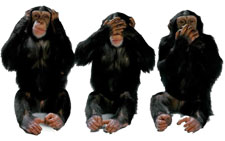








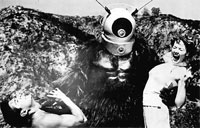
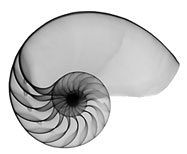
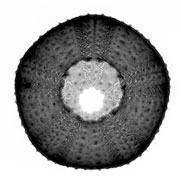
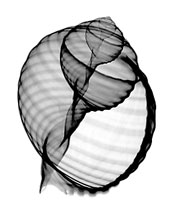








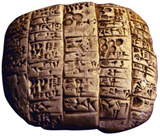
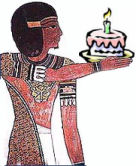





 Subscribe via RSS!
Subscribe via RSS!













 Via Email
Via Email

